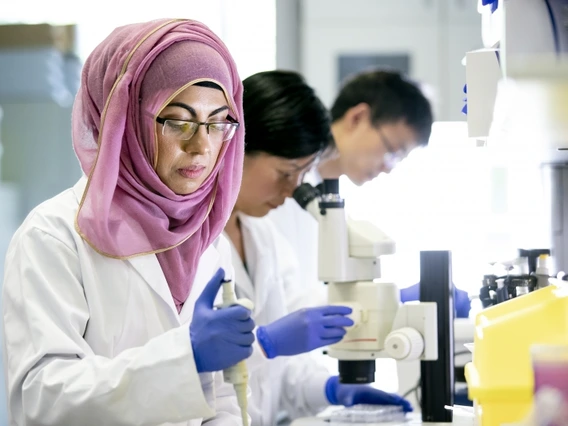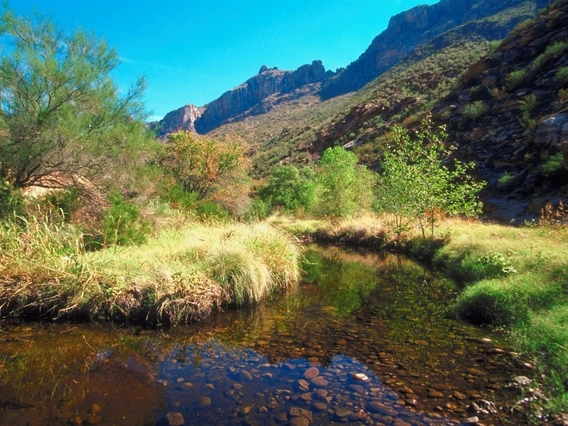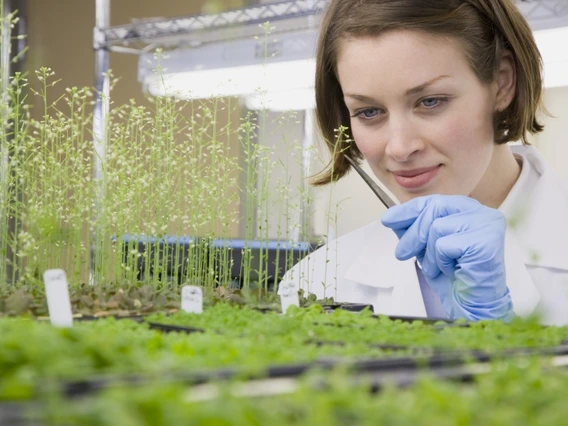Undergraduate Major Programs

Biology
Organismal Biology Emphasis
This major offers broad training in biological molecules, cells, organisms, communities and entire ecosystems and the study of the study of genetics, biochemistry, ecology and evolution. Immersive, hands-on experience prepares you for a satisfying career in myriad professions, with an emphasis on preparing for graduate or professional school.

Ecology and Evolutionary Biology
Explore evolutionary ecology and genetics in the first department of its kind in the world. Prepare to pursue graduate study or a career such as scientific journalism, developing environmental and scientific policy, or practicing law in related fields through core courses in genetics, ecology and evolution, and additional opportunities for independent research.

Environmental Science
Leadership, Sustainability, and Communication Emphasis
Immerse yourself in environmental laws, regulations and policies to discover how to be part of a successful response to pollution, natural resource management and climate change. Learn to predict how landscapes change under the effects of climate, geology and land use, and what actionable steps are needed to create a sustainable future.

Environmental Science
Physical and Chemical Dynamics Emphasis
Learn how to apply scientific principles to environmental conservation and identify ways to overcome ecological challenges while integrating concepts from biology, chemistry, and physics to comprehend how different environments function as systems. Graduate ready to apply that understanding to the planet's most pressing issues related to soil, water, air, human health, and natural resources.

Microbiology
Learn how microorganisms interact with their surroundings with diverse coursework in food safety and consumer health; plant pathology and microbiology; environmental microbiology; microbial genomics and biotechnology; and medical microbiology. This program cultivates your expertise in preparation for highly specialized professions from biotechnology to medical science.

Natural Resources
Ecology, Management and Restoration of Rangelands Emphasis
Rise to the challenge of sustainably repairing and responsibly managing ecological systems with this degree, which focuses on resource management and restoration by building a strong foundation in the biological, physical, ecological and botanical sciences and field courses, internships, lab work, and opportunities to join research and restoration projects.

Natural Resources
Global Change Ecology and Management Emphasis
Gain understanding of biological and physical sciences, conservation law, socioeconomics, and new technologies for geospatial mapping and remote sensing while cultivating leadership, problem-solving, collaboration, management, and critical thinking skills to prepare for a career as a natural resource scientist, manager, and leader ready to address evolving management changes in the face of global change.

Natural Resources
Watershed Hydrology and Management Emphasis
Prepare for a career as a hydrologist or careers in organizations and businesses concerned with integrated land management, the environment or water resources with specialized coursework in ecology, ecosystem science, social science, communication, policy analysis, and the management of surface water resources.

Natural Resources
Wildlife Conservation and Management Emphasis
Prepare for a career as a wildlife or fishery biologist, develop strategies to maintain biodiversity and habitat, help rare and endangered species recover, manage populations of harvested animals, monitor populations of plants and animals, manage refuges, implement research projects, eliminate invasive species, and educate the public.

Plant Sciences
Prepare to make a difference on a global scale as a scientist or leader who understands the importance of plants in sustaining environmental and human health. You'll gain knowledge and skills in biotechnology, genomics, molecular biology, plant propagation and breeding, medicinal chemistry, and other modern approaches to 21st century agriculture.
Pagination
Environmental Themes
Career Fields












